Before diving in, I’d like to extend a warm welcome to everyone. I appreciate how many things compete for your attention. And yet, you chose to spend a few minutes thinking about cancer. Very cool.
A bit about me: I grew up on a farm in Illinois, moved to North Carolina for college, travelled around a bit, and settled back in North Carolina. I’ve worked at large, urban cancer centers and small community hospitals. I now lead a growing cancer survivorship program at an NCI-designated comprehensive cancer center and care for patients in a rural community.
After a decade in clinical practice, I realized that I was having the same conversation over and over in my exam rooms. Patients consistently expressed a gap in what they (or the people around them) expected cancer to be and what it actually was. I realized that if I was hearing this from so many patients, it was probably on the minds of more people out there.
And maybe if I brought cancer out of the shadows and into the light, I could shift the conversation from fear and dread to understanding and even hope. For any cancer survivors or care partners, I hope these posts will ring true to your experience.
Thank you again for being here and if you like what you read, please share this post with a friend. Cancer will touch all of us, so we need as many people at this table as possible. Now on to the show…
The new Barbie movie is out and has grossed over 1 BILLION DOLLARS. *explodingheademoji*. Critics are asking: Is this a reimagining of the Western woman in the post-Roe world? Or a capitalist grab for millennial money wrapped in campy nostalgia? The jury is still out, but I have another theory.
In one of the first scenes, party music screeches to a stop when the beautiful blonde asks a seriously deep question. Without explanation, we understand why the music stops: Barbie “shouldn’t” be asking this question. We know how Barbie should act and it’s not like this! The underlying tension is what has happened to Barbie?
On a quest to answer that question for herself, Barbie visits Weird Barbie played by SNL alum Kate McKinnon. Representing the doll that everyone destroyed, she bears the scars of life and the knowledge that Birkenstocks are the way to enlightenment. This wild-eyed guru has lived outside the box which obviously makes her an outcast in Barbie’s well-scripted existence.

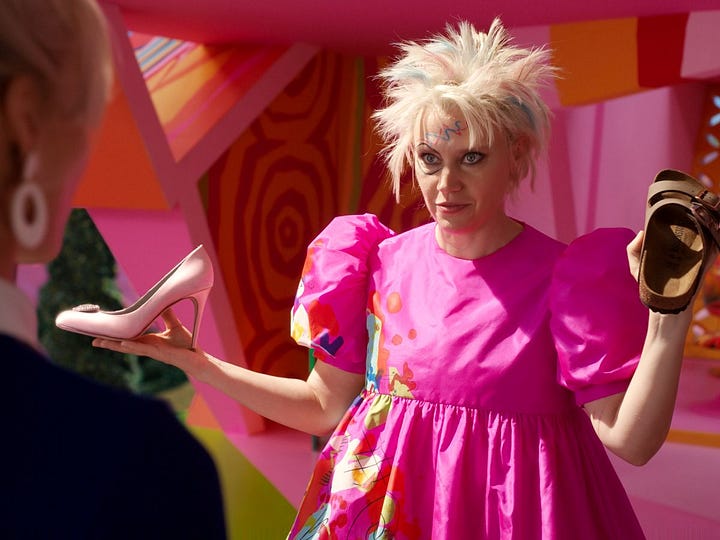
A patient confided in me the other day that she felt like an imposter. She shared that she was afraid and mad and not the brave cancer survivor that everyone thought she was. And then she broke down into tears, apologizing for “losing it.” As I handed her tissues, we talked about life on the cancer patient pedestal versus her lived experience. She told me about how she felt guilty for complaining. As her tears dried up, we talked about what she needed and how to ask for that.
Watching Barbie bring a dance party to a screeching halt with one unexpected question made me think about my patient and what would happen if she told everyone how she really felt. Did she try to tell them and was met with silence? Or did she keep her feelings locked away so as not to “bother” anyone?
People with cancer got dealt a bad hand and are playing it the best that they can. Is it fair to expect them to remain positive at all times? Is it possible? Like Goldilocks searching for the perfect bed, what is the “just right” amount of positivity we expect from a cancer patient? When you close your eyes and imagine a person with cancer, who do you see?
"Breast cancer, I can now report, did not make me prettier or stronger, more feminine or spiritual. What it gave me, if you want to call this a “gift,” was a very personal, agonizing encounter with an ideological force in American culture that I had not been aware of before—one that encourages us to deny reality, submit cheerfully to misfortune, and blame only ourselves for our fate."
— Barbara Ehrenreich (Bright-Sided: How the Relentless Promotion of Positive Thinking Has Undermined America)
One place with a gigantic vision of cancer is Hollywood. Movies typically depict cancer as A BIG DEAL THAT CAUSES BIG THINGS TO HAPPEN. Relationships intensify, bucket lists are cleared, and forgiveness reigns. Is this what you imagine cancer to be?
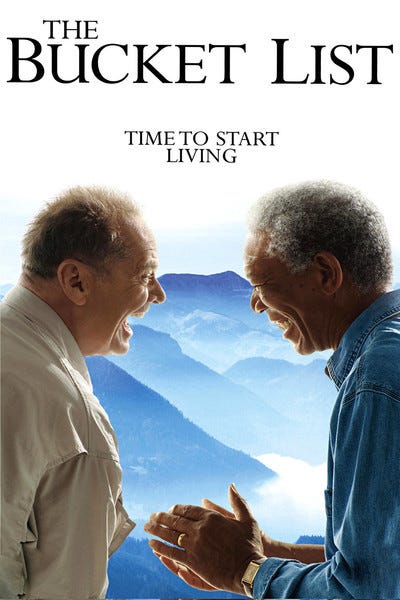
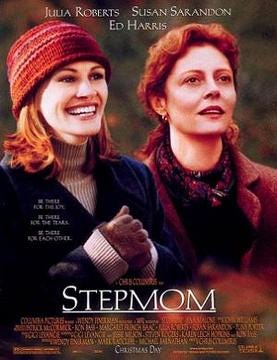
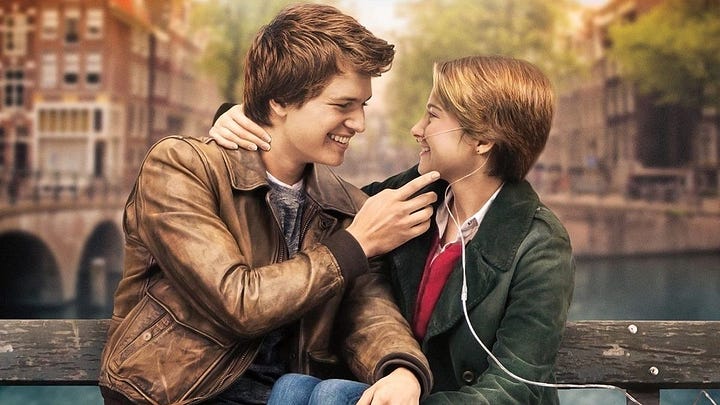
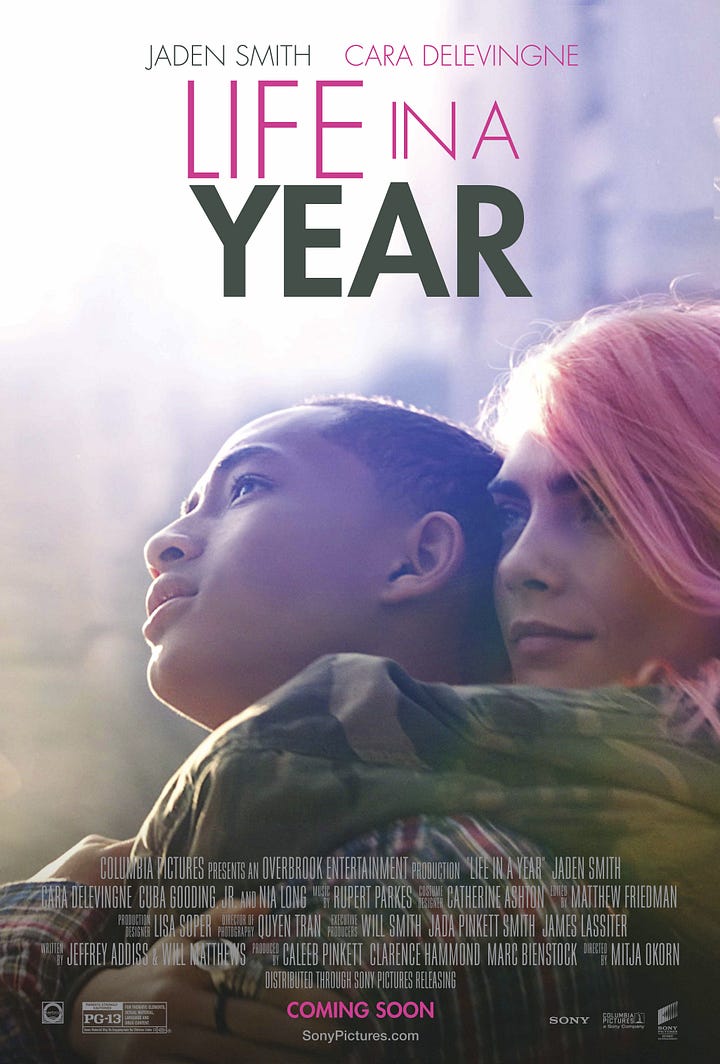
I understand that cancer provides the perfect catastrophic backdrop to move characters around profound questions like love and loss. But it also elevates cancer to this epic battle where people drastically change their behavior because of a terminal diagnosis. Love conquers death. Unrequited passion races against time. I wish this was always true.
In real life, wonderful miracles occur, family rifts heal, and once-in-a-lifetime trips are planned. But watching patients for years now, it seems to me that cancer is 99% the mundane process of slogging through, hoping to put, as one reader eloquently commented on my last post, “the biggest down payment on survivorship” that one possibly can.
Cancer reality can be found in Season 6 of the original Sex and the City television series. After going through breast cancer treatment, Samantha is invited to speak at a fundraiser. Sweating profusely and unable to bear one more second under the hot stage lights, Samantha rips off her wig. She is humbled when survivors in the audience stand and remove their wigs in solidarity. This small, authentic moment tells me that someone in the writer’s room had experience with cancer.
Cancer enters into normal lives and once the initial explosion is over, life continues albeit in a modified state. Along with being annoyed at people’s driving, packing lunches, logging on to pointless Zoom meetings, and worrying about inflation, cancer patients and their care partners navigate labyrinthine hospitals, interpret everchanging symptom clusters, and wait (mostly) patiently in cold exam rooms. They do life with a side hustle of cancer. Which is both brave and the only real choice if they decide on treatment.
Heroes? Absolutely. Warriors? Maybe?
Is it possible for cancer patients to be normal and brave? To be weak and fighting? To be beautiful and broken?
As Barbie’s perfect insoles hit the ground, what images of the perfect cancer patient can we let go of? Which friend needs help stepping off the pedestal? What scars do we hide that if revealed might show others how weird, wonderful, and wise we are?
On my mind…
I almost didn’t listen to Scamanda. There is justice in the end for this mommy-blogger who faked cancer for 8 years, but not enough to pay for what she did.
This girl is on FIRE. Women’s World Cup star Linda Caicedo was diagnosed with ovarian cancer at the age of 15. After treatment, she played for her home country, dominated the World Cup, and signed with Real Madrid.
I’m reading Stephen King’s On Writing. One memorable passage, “I believe the road to hell is paved with adverbs.”
Thank you for being a friend!
So, an alligator walks into a CT scanner….


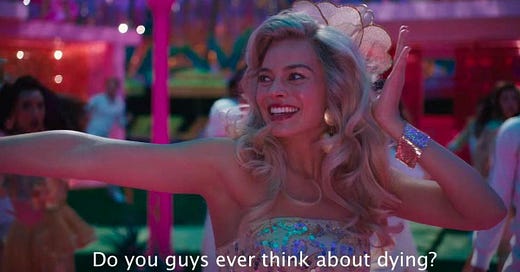



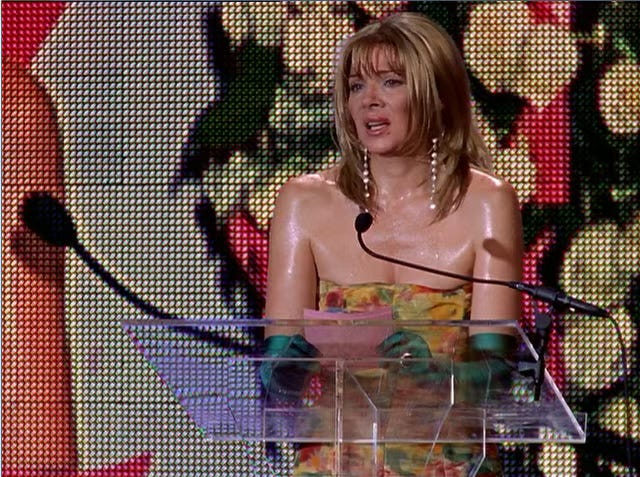
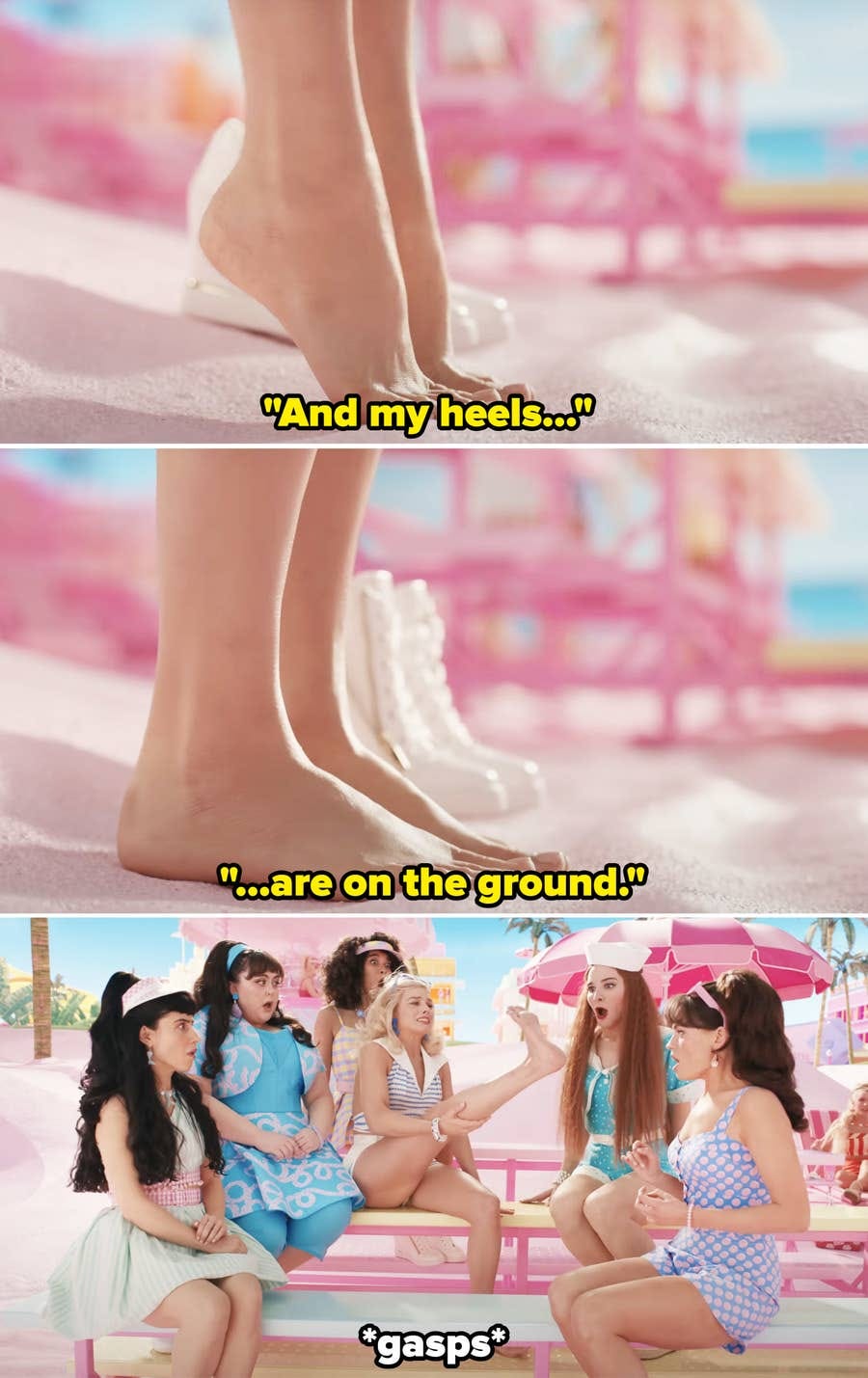

Your words made me cry. I'm recovering from a stem cell transplant for a rare cancer and am so tired of managing other peoples feelings about it.
Thank you for writing this. It's all the feelings and thoughts of a person trying to heal from breast cancer. Me. Thank you. ❤️